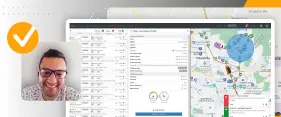Start a Business that Can Grow
If you want to start a tracking business and become an entrepreneur, you're in the right place. On this page, you'll find everything you need to know to begin and expand a GPS tracking company, with the ability to grow and innovate with the ever-evolving new technologies.
It also includes links and downloadable resources that will be very helpful to you. So, whether you're just starting out or already own a tracking business, this article is of utmost interest to you.
After COVID-19, Is It a Good Time to Start a Tracking Business?

Yes, if you've made it this far, let us tell you that you've made the right decision, as long as you start a GPS tracking business focused on the future.
Both technology, GPS devices, and connectivity networks have evolved significantly in recent years, so the way of doing business is no longer the same as before. For this reason, as a future entrepreneur, you need to be familiar with the world of IoT because that's where the industry is headed.
Despite all the challenges and obstacles that COVID-19 continues to pose, and the global economic recovery will take time, there are good market conditions due to the digital transformation of businesses and everyday life, a transformation that accelerated due to Covid19.
What Changed with the Coronavirus?
COVID-19 questioned many of the practices that were taken for granted in the industry and the market:
1. First, telematics and IoT have a significant future in the modern world, as the need to apply them to any sector, from agriculture, transportation, commerce, services, security, and health, has become evident.
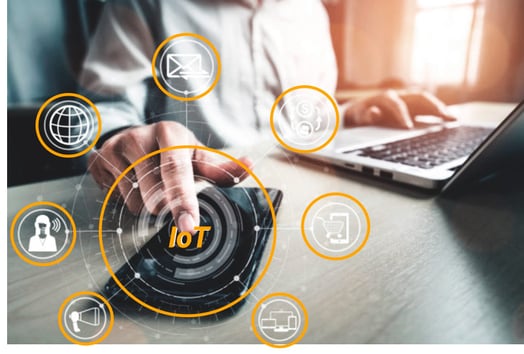
2. Information is valuable. The solutions that can be generated today thanks to GPS tracking combined with new devices, sensors, and connectivity updates are vital in the post-coronavirus world.
3. Companies and governments are investing substantial resources in technology to be prepared to respond to a situation like the one we just experienced. Of course, we don't want it to happen again, but there is no guarantee that it won't.

4. Finally, the economic and labor structure of countries worldwide has changed: the coronavirus accelerated the automation and digitization of businesses.
All of the above represents a tremendous opportunity for those who decide to be part of this new demand for products and services related to tracking technology and IoT.
Those who best anticipate these changes will be better positioned. That's why, if you're starting a GPS tracking business, you should consider the new business opportunities presented by the current situation we're experiencing.
First Steps: Essential Elements

We want your new business to thrive because success in business also creates prosperity in society.
For this reason, if you're wondering, 'What do you need to start a tracking business?' we will tell you that there are essentially three things you need:
1. Clearly define your business idea
This is the most essential aspect and, therefore, often the most neglected. Yes, we know that you want to provide tracking services, but you don't dedicate time to shape your mission and vision.

You will find many resources on the web that can help you define these aspects. But beyond that, understand that your vision will guide all the actions and aspects of your business and is directly related to the benefit and profitability you seek.
Many businesses "only offer" tracking services, leaving behind the significant business opportunities that go beyond traditional services because they are not aware of all that technology can achieve or simply because the platform they use lacks the necessary tools.
Our advice is to take a step further and plan your business not based on traditional services but include new solutions in your vision that allow you to differentiate yourself from your competition, such as those related to telematics, IoT, and mobile applications.
That's why the future of your business is tied to the platform you choose and the post-sale technical support because it's what will enable you to offer solutions that allow you to tackle projects that will make you grow. So define your idea, whether with your team or with an advisor who can help you project your business idea and put it in writing.
2. Equipment
To start a GPS tracking business and offer services and technology with a vision oriented toward both IoT and telematics, you need three basic things:
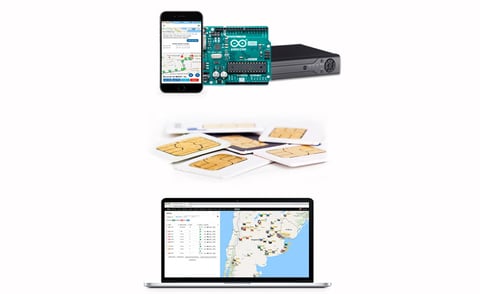
a. Hardware and sensors, whether GPS/IoT.
b. Connectivity through SIM cards or LPWAN networks.
c. GPS/IoT Tracking Platform.
These three elements form the basis of the numerous solutions you can offer to your customers, and you should have a clear understanding of them because ensuring that they work in harmony and perfection will ensure customer satisfaction.
For this reason, you should dedicate time to selecting each of these components, especially the integration between equipment and platform because, otherwise, your business will not be able to maintain its profitability and competitiveness in the short or medium term.
We advise you to define the type of service you will offer to your potential customers, then select the equipment you will work with and make sure they are integrated into the platform you have chosen or are capable of homologating.
There are platforms that can homologate equipment that is not integrated, so investigate the conditions for homologation (time, cost, or whether it is already included as a service).
Also, determine the type of connectivity you will use. It's worth noting that this decision will not be final because as your tracking business begins to grow, you will need to work with different GPS device brands and different types of connectivity.
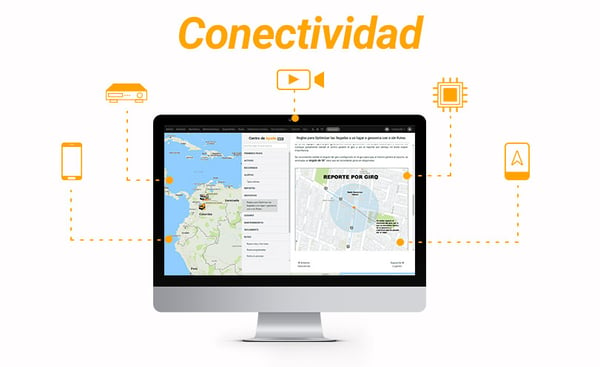
And this is a positive scenario because it signals that your tracking business is growing and evolving.
3. Tracking Platform
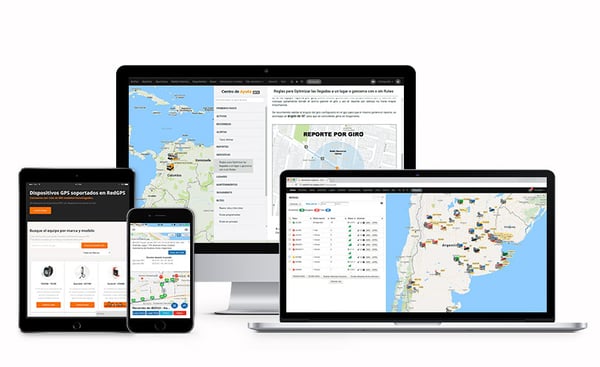 Choosing a tracking platform is probably the most crucial aspect. Your company's growth possibilities depend on the platform you choose.
Choosing a tracking platform is probably the most crucial aspect. Your company's growth possibilities depend on the platform you choose.
Both equipment and the platform should be means that allow you to do more and better business, not limiting factors that will prevent you from growing in the short or medium term.
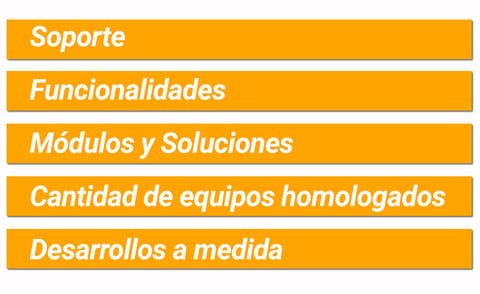
Therefore, it is vital to thoroughly evaluate all the features that each platform offers, from support, functionality, modules, and solutions it provides, to its stability, the number of approved devices, and its ability to develop custom solutions.
There are many types of platforms, some provided by equipment manufacturers, others installable, meaning you can purchase the software and install it on your own servers, and others in the cloud that offer license plans.
All of them have their advantages and limitations, some more than others, of course.
The following table will be of great help:
|
GPS manufacturer's platform |
On-Premises platform |
White-Label Cloud Platform (SaaS) |
|
|
Stability |
Yes |
Depends on infrastructure |
Yes |
|
Escalabilidad |
No |
Depends on infrastructure |
Yes* |
|
Maintenance costs |
Low |
High |
None |
|
Implementation cost |
Low |
High |
Low |
|
Mobile apps |
Limited |
Depends on infrastructure |
Yes* |
|
Big number of solutions and features |
No |
Limited |
Yes* |
|
Technical support |
No |
Depends on infrastructure |
Yes* |
|
Cost per license |
Low |
High |
Low |
|
Devolopment of new solutions |
None |
Low |
Medium or High* |
|
Web services, API |
No |
Limited |
Yes* |
Advantages and Disadvantages of Platform Types
Working with the platforms provided by equipment manufacturers is the most cost-effective option, and that is both its advantage and weakness.
It is true that the costs for licensing, operation, and maintenance are low. However, on the other hand, you won't have support or customization options with your brand or your customers' logos. Additionally, the possibility of custom developments or creating new tools or solutions, or even having mobile applications, is practically non-existent.
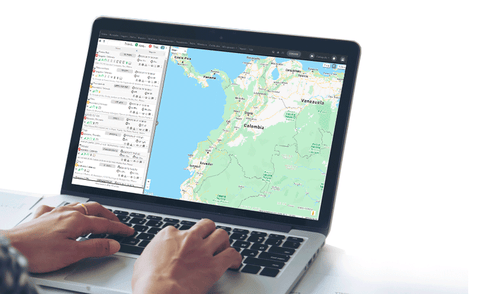 On the other hand, working with an installable platform has the advantage that you can control, to some extent, the cost per unit, and you won't depend on licensing in most cases.
On the other hand, working with an installable platform has the advantage that you can control, to some extent, the cost per unit, and you won't depend on licensing in most cases.
However, you will have to take on the maintenance of servers and other hidden costs that are easy to overlook, such as using mapping services like Google Maps, dedicated internet services, or monitoring this infrastructure, among many others.
In addition, the development of new tools or solutions like apps will also depend on the development personnel you can hire.
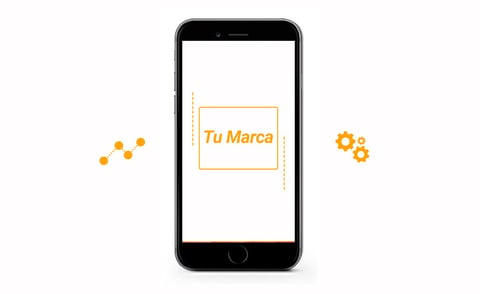 Finally, a white-label cloud platform has significant advantages, such as customizing your platform and mobile applications with your logo or your customers' logos, and you will no longer have to assume maintenance costs. Also, if the platform you choose makes constant developments or releases, you can always offer new services and solutions, among other advantages.
Finally, a white-label cloud platform has significant advantages, such as customizing your platform and mobile applications with your logo or your customers' logos, and you will no longer have to assume maintenance costs. Also, if the platform you choose makes constant developments or releases, you can always offer new services and solutions, among other advantages.
In this scenario, you pay for what you use, and it is the current trend that provides the best value for staying up-to-date at a low cost.
An Important Decision
The above are just some aspects you should consider. That's why it's important to analyze which option is most suitable to make your business idea possible, and more than a problem, the platform you choose should be your strength.
It is true that this can be a very complex issue because a comprehensive platform can have too many tools and technical aspects to consider.
3. Human Resources
What personnel will you need?
Human capital is as important as any other, because one of the mistakes many companies make is neglecting personal attention. And although it may seem obvious, it's something your customers will notice.
In fact, it is a very important factor in the hiring decision to know that there are people behind the company who listen and understand their questions and concerns.
 Among the staff you will need are Technicians or installers, people who know the equipment and can solve the problems that arise during an installation and work cleanly, meaning they do not damage the units.
Among the staff you will need are Technicians or installers, people who know the equipment and can solve the problems that arise during an installation and work cleanly, meaning they do not damage the units.
 Support personnel, who enjoy talking to their customers and are familiar with both equipment and platform usage and can help resolve customer questions and issues.
Support personnel, who enjoy talking to their customers and are familiar with both equipment and platform usage and can help resolve customer questions and issues.
 Programmers, this is an optional position if you will be doing your own or custom developments for your customers. You can also rely on your platform provider company if they offer Software Factory services to support your custom projects.
Programmers, this is an optional position if you will be doing your own or custom developments for your customers. You can also rely on your platform provider company if they offer Software Factory services to support your custom projects.
 Communication or marketing personnel who manage your social accounts or website and help you generate a value proposition and communicate it effectively to your prospects because, with a great platform and a good team in place, you now need to go out and tell the world. You can also consider your sales team here.
Communication or marketing personnel who manage your social accounts or website and help you generate a value proposition and communicate it effectively to your prospects because, with a great platform and a good team in place, you now need to go out and tell the world. You can also consider your sales team here.
Grow Your Business

We are going through an evolution in the tracking service. We can generalize that basic GPS tracking represents a significant volume of the business worldwide and will continue to be the mainstay for most companies.
However, in recent years, many companies have migrated from basic GPS tracking to a service oriented to cover cross-cutting needs in many industries, in areas of opportunity that until recently we had never thought of.
This is due, in part, to the evolution of technology as well as the dynamics of society itself, and on the other hand, the conditions that the coronavirus is leaving behind.
Go Beyond the Limits of Your Industry
Regarding the latter, we know that the pandemic accelerated the digitization of many social, administrative, and business activities and led many companies to offer cross-cutting services with the goal of helping at the local, regional, or global level.
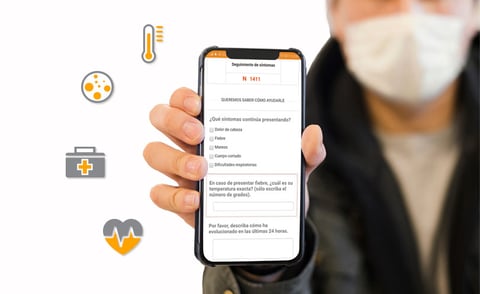
An example can be found in our own company, where a development originally intended for fleet maintenance has been used by many of our partners to track symptoms of citizens, employees, patients, or anyone through our mobile application.
And this is the key. Your company can only grow to a limit if it continues to provide traditional GPS tracking services, offering the solutions that your competitors also offer, which will lead to an inevitable price war.
You can grow your tracking company by offering services and solutions that can be applied to different markets, from tracking bicycles and security patrols to symptom monitoring, electronic door control for valuables transport, and even boat tracking.
IoT Orientation: Build a Future-Focused Business

IoT, rather than the future, is the new present we live in. If you are starting your company, now is the best time to define it as a GPS tracking/IoT company.
This allows you to create a mission and vision with which you can search for more business opportunities in markets that your competitors are not exploring from the beginning, and your company will not be left behind with the technological change we are already experiencing.
 Defining your startup as a GPS tracking/IoT company allows you to offer utilitarian solutions such as Bluetooth IoT tire monitoring and work with low-power networks of local, regional, national, or even global reach.
Defining your startup as a GPS tracking/IoT company allows you to offer utilitarian solutions such as Bluetooth IoT tire monitoring and work with low-power networks of local, regional, national, or even global reach.
Defining your startup as a GPS tracking/IoT company allows you to participate in businesses related to new technologies and devices (e.g., sensors) for fuel control, driver fatigue detection, security, among others.
For these reasons, if your interest is in creating a tracking business, what you should consider is creating a company that provides IoT consultancy and professional services with a focus on GPS tracking.
So, it's not just about starting a tracking business, but creating a competitive company capable of growing and innovating, aligned with new technologies, and allowing you to participate in major business projects.
If you have any questions, contact us; there will always be an advisor who can help you with pleasure.








